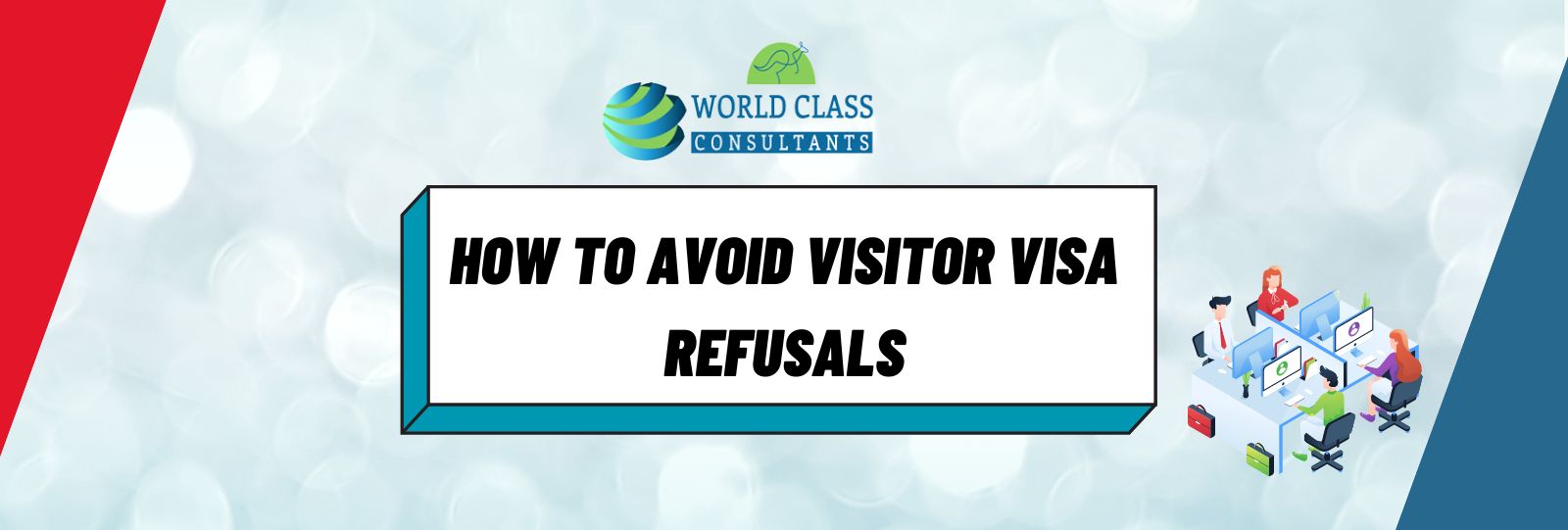Traveling abroad can be an exhilarating experience, promising moments of discovery, connection, and adventure. Yet, for many individuals, the process of securing a visit visa can be fraught with stress and uncertainty, particularly when the specter of a visitor visa refusal looms large. It’s a scenario that many dread, for good reason—visitor visa refusals are not just an administrative inconvenience; they can significantly impact one’s plans and aspirations. Understanding the common pitfalls that lead to visa denials and taking proactive steps to address them can vastly improve your chances of a successful application.
In this comprehensive guide, we’ll explore the key reasons behind visit visa refusals and arm you with a toolkit designed to help you secure that coveted travel permit.
Understanding Visitor Visa Refusals

Visa refusals are often a combination of complex factors, but there are a few common threads that run through a majority of cases.
Common Reasons for Refusals
Over the years, immigration authorities have identified recurrent issues that lead to the refusal of visit visas. Among these are inadequate financial documentation, incomplete or incorrect forms, insufficient evidence of ties to the home country, and unclear or dubious reasons for travel. In essence, a successful visa application must convince the adjudicating officer that the applicant is a genuine visitor who will respect the terms of their stay.
Impact on Future Applications
A visitor visa refusal isn’t just a black mark on your application history; it can also make future travel more challenging. Each visa application is typically reviewed in light of previous decisions. If your past application was denied due to a perceived lack of credibility, you will have an even higher bar to clear with future applications.
Tips to Prevent Visit Visa Refusals

Navigating the visa application process with precision and foresight is key to avoiding visitor visa refusals. Here are five essential tips to enhance your application:
1. Thorough Documentation
One of the simplest yet most crucial aspects of your visa application is the documentation you provide. Omissions or errors in your paperwork can trigger a refusal, so it’s imperative to be thorough.
Checklist of Required Documents
Start by obtaining a comprehensive list of the documents needed for your specific visa category. Requirements can vary substantially depending on the country of application, the duration of your stay, and the purpose of your visit. Create a checklist and ensure that you can check off each item before submitting your application.
Importance of Accuracy
Each piece of information supplied in your application must be accurate and verifiable. Inaccuracy, even if unintentional, can be seen as problematic. Double-check every form, every date, and every detail. Remember, your credibility as an applicant is under scrutiny.
2. Clear Purpose of Visit
Articulating a clear and genuine purpose for your visit is vital. It helps the visa officer understand your intentions and assess the risk of potential overstay.
Detailed Itinerary and Intentions
Provide a detailed travel itinerary that outlines your plans and stays within the permitted visa duration. Whether you’re visiting for tourism, family reasons, or business, your schedule should align with the activities you’ve described in your application.
Supporting Documents
Back up your itinerary with solid evidence. This may include flight and hotel reservations, event tickets, or invitations from hosts. A structured and well-supported narrative about your visit can substantiate your claim that you’re a bona fide visitor.
3. Financial Stability and Proof
Demonstrating that you can support yourself financially during your visit is a key requirement that’s non-negotiable. Failing to do so can raise red flags about your intentions and preparedness.
Sufficient Funds
Calculate the estimated cost of your trip, including accommodation, living expenses, and contingencies. Your bank statements should provide a clear picture that you can afford the visit without seeking unauthorized employment or public assistance.
Importance of Stability
Immigration officers look for regular and consistent income. If your financial situation is complex, consider providing additional context or evidence to assuage any doubts. Stability in your finances is often equated with stability in your life and, by extension, your intention to return home.
4. Genuine Intentions
A visit visa is just that—a promise to visit. Your application should reflect a genuine intention to leave the country at the end of your authorized stay
Honesty and Transparency
It might be tempting to omit or misrepresent certain facts to ‘improve’ your application. However, this approach is likely to backfire. Be honest about your personal and travel history; inconsistencies can easily be detected.
Avoid Misrepresentation
Never falsify information or provide forged documents. If you’re caught, the consequences can be severe, potentially impacting your ability to travel internationally. The integrity of your application is paramount.
5. Professional Assistance
In some cases, seeking professional guidance can be a wise investment, especially if your situation is particularly complex or you’re applying for a visa for the first time.
Immigration Consultants
A reputable World Class Consultants can provide expert advice on the application process, improve the organization of your paperwork, and offer peace of mind. They are adept at spotting potential issues and can guide you in addressing them before submission.
Application Review
Before submitting your application, have it reviewed by an expert. This extra step can highlight any issues you may have overlooked and give you an opportunity to correct them.
Conclusion
A visitor visa refusals can be a disappointing setback, but it’s not the end of the road. By taking a proactive approach to your visa application, you can significantly diminish the likelihood of a refusal. In summary, meticulous planning, honesty, transparency, and professional assistance can all contribute to a stronger, more convincing application. Remember, while the final decision is out of your hands, the effort you put into your application is a clear demonstration of your commitment to responsible and respectful travel.



